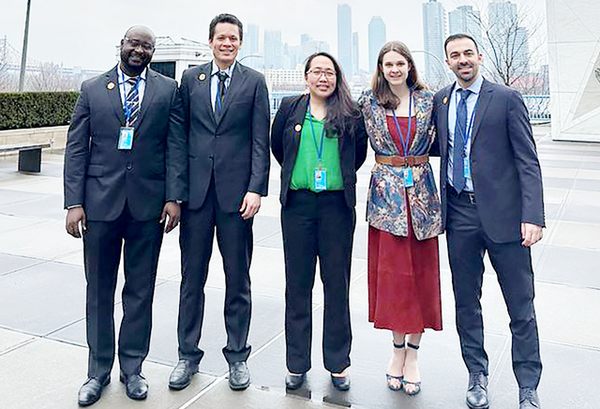In late March, the United Nations hosted the first conference on water in 46 years. The Pulte Institute for Global Development’s Sustainability and Human Rights Initiative (SHRI) was one of 200 groups invited to present its efforts to combat water insecurity. (Only nine other universities were invited to present.)

Around 2 billion people live in areas where water is scarce. Yet water remains undervalued and mismanaged, and its role in tackling climate change, migration, poverty, and inequality needs greater acknowledgment — especially from industry actors. Mining, for example, is a critical sector for the energy transition and often operates on indigenous land in areas of high water scarcity.
In response, SHRI provided a practical framework at the UN with insights into how water-intensive industrial projects affect the environment and communities.
SHRI’s human rights-based approach leverages the expertise of Notre Dame faculty and researchers across disciplines — engineering, global affairs, law, and business — to find solutions to promoting ethical stewardship practices among corporate and government industry actors.
“There is growing momentum to push for improved, coordinated water management at the national and international levels. But what about the private sector?” said Pulte Innovation and Practice Research Associate Lizzie Dolan. “Without their buy-in, this crisis will only accelerate.”
The team (Dolan, Ellis Adams, Leonardo Bertassello, Diane Desierto, Kevin Fink, Marc Mueller, Ray Offenheiser, and Tom Purekal) offers states and corporations a research-based approach, incorporating ethical and legal understandings of regulatory and operational processes to facilitate efforts to fulfill the human right to safe, clean water.
Read more about the Sustainability and Human Rights Initiative (SHRI) at go.nd.edu/shri-un-side-event